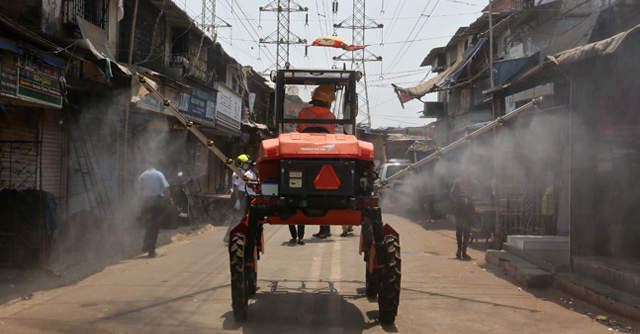
Key home ministry guidelines to enforce extended national lockdown


The government has issued a set of guidelines to be followed during the nation-wide lockdown, which has been extended for three weeks till May 3. These guidelines will be enforced by district magistrates, who will appoint incident commanders in the local jurisdictions.
Private establishments and businesses that have been granted exemption from the extended lockdown include:
- Hospitals, veterinary hospitals, dispensaries, clinics, pharmacies, medical equipment stores, laboratories, nursing homes and ambulances
- Ration shops under the Public Distribution System, and shops that sell groceries, vegetables, fruits, dairy products, meat and fish, animal fodder, pesticides, fertiliser and seeds
- Banks, ATMs, insurance offices, bank correspondents, and ATM and cash management agencies
- Print and electronic media companies
- Ecommerce companies that deliver food, medicines and pharmaceuticals
- Petrol pumps and power generation units
- Cold storage and warehousing services
- Capital and debt marketing services and private security services
- Farming operations and fishing industry operations
- Truck repair operations on highways
- Manufacturing units of essential goods including drugs, pharmaceuticals, medical devices and raw materials, and intermediaries that supply the final product to companies
- Coal and mineral production
- Packaging material units and tea plantations
- Transportation services for essential goods
- Broadcast and cable service providers
Telecom, internet services, information technology (IT) and IT enabled services (ITeS) workers have been advised to operate remotely as much as possible.

All religious, social, political and sports gatherings have been banned. A maximum of 20 people will be allowed to attend funerals.
The guidelines said the rules are meant for individuals and those violating it will be charged under Section 188 of the Indian Penal Code and Section 51-60 of the Disaster Management Act, 2005.
On March 27, the home ministry had issued a standard operating procedure for essential goods and services, following the announcement of the initial country-wide lockdown on March 24. These have been added to the current set of guidelines.

Read: Coronavirus India LIVE Updates
To date, India has reported 10,363 positive cases of Covid-19, according to data shared by the Ministry of Health and Family Welfare. Maharashtra tops the list of affected states with the highest number of confirmed cases, followed by New Delhi and Tamil Nadu.
